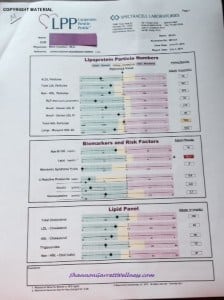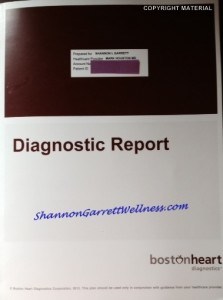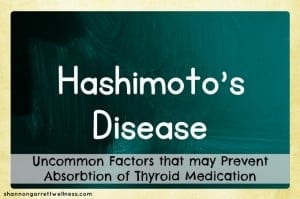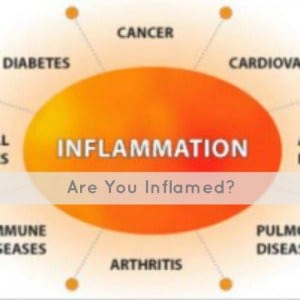
Heart disease is responsible for 1/3 of female deaths each year. More women die from heart disease than all forms of cancer combined and heart disease is the leading cause of death among women.
Risk Factors for Heart Disease:
- Do you have Hashimoto’s disease?
- Are you over the age of 50?
- Do you have a cholesterol level of 240 mg/dL or higher?
- Is your HDL (High Density Lipoprotein) cholesterol level less than 40 mg/dL?
HDL is the good cholesterol…so remember the “H” as in you want this level to be “High”
LDL is the bad cholesterol…..so remember the “L” as in you want this level to be “Low” - Do you get fewer than 30 minutes of physical exercise per day?
Ladies, hypothyroidism caused by Hashimoto’s or other issues is associated with an increased risk of heart disease mainly due to high levels of low-density lipoprotein (LDL) which is the “bad” cholesterol. Hypothyroidism can lead to an enlarged heart and in rare cases, heart failure if left untreated.
This is how I remember which cholesterol level you want more and less of:
- HDL (remember the H and think of the word “high.” You want high levels of HDL
- LDL (remember the L and think of the word “low.” You want low levels of LDL
Testing for Cardiovascular Disease
 My personal doctor, Dr. Mark Houston, uses extensive cutting-edge cardiac risk testing – not necessarily when I’m symptomatic or having issues, but as a part of my routine wellness visits. He also orders specific tests as a part of my annual physical. This is his protocol to measure my baseline and to assess risk factors as I age. Did you know that the cardiovascular system is one of the first body systems to age? This is why the medical specialty of anti-aging medicine focuses a lot of its attention to cardiovascular health. One of the tests (among many!) is the Lipoprotein Particle Profile (LPP) by Spectracell Laboratories. It is a blood test that measures Lipoprotein particle numbers as biomarkers for risk factors for cardiovascular disease. Rather than a report which shows “in range/out of range” the report that comes back is in graph and range form with references to indicate risks by category: Borderline, High Risk, or Very High Risk along with comments and suggestions to be reviewed with your physician. For example, I just received my LPP profile report yesterday and it is a is good report except for the fact that my Lp(a) is grossly elevated at 61.7. The reference range is 6.0 to 29.9. Lp(a) is highly associated with cardiovascular disease and is an inherited trait. Unfortunately, Lp(a) does not respond to diet, exercise, or statin drugs. The only treatment for high Lp(a) of a value >30 is typically niacin and aggressive LDL reducing treatment. Fortunately, as a part of my autoimmune disease protocol, I am already taking niacin, and my LDL is in the low 70s (normal is <130 mg/dL) so I guess you could say I’m managing my risk factors well.
My personal doctor, Dr. Mark Houston, uses extensive cutting-edge cardiac risk testing – not necessarily when I’m symptomatic or having issues, but as a part of my routine wellness visits. He also orders specific tests as a part of my annual physical. This is his protocol to measure my baseline and to assess risk factors as I age. Did you know that the cardiovascular system is one of the first body systems to age? This is why the medical specialty of anti-aging medicine focuses a lot of its attention to cardiovascular health. One of the tests (among many!) is the Lipoprotein Particle Profile (LPP) by Spectracell Laboratories. It is a blood test that measures Lipoprotein particle numbers as biomarkers for risk factors for cardiovascular disease. Rather than a report which shows “in range/out of range” the report that comes back is in graph and range form with references to indicate risks by category: Borderline, High Risk, or Very High Risk along with comments and suggestions to be reviewed with your physician. For example, I just received my LPP profile report yesterday and it is a is good report except for the fact that my Lp(a) is grossly elevated at 61.7. The reference range is 6.0 to 29.9. Lp(a) is highly associated with cardiovascular disease and is an inherited trait. Unfortunately, Lp(a) does not respond to diet, exercise, or statin drugs. The only treatment for high Lp(a) of a value >30 is typically niacin and aggressive LDL reducing treatment. Fortunately, as a part of my autoimmune disease protocol, I am already taking niacin, and my LDL is in the low 70s (normal is <130 mg/dL) so I guess you could say I’m managing my risk factors well.
My annual exams always include a cardiac stress treadmill test, echocardiogram, ECG, EndoPat (a 15 min. test that checks the status of the lining of arterial vessels) and a Boston Heart Diagnostics lab test that includes a detailed action plan. My routine wellness visits are every 4 months and we check C-Reactive Protein (CRP), Homocysteine and other markers. I feel lucky to be in such good care.
Boston Heart Diagnostics lab test that includes a detailed action plan. My routine wellness visits are every 4 months and we check C-Reactive Protein (CRP), Homocysteine and other markers. I feel lucky to be in such good care.
Does your doctor utilize these tests? If not, you might want to inquire about them or find a physician who does because it’s simply that important. Cardiovascular disease symptoms in women (particularly heart attacks) don’t usually present the same way they do in men because we are such intricate and complex creatures! (More about that in a future post). The days of assessing cardiovascular risks only through blood pressure and cholesterol levels only are OVER…so make sure your doctor has received the message and is current in his or her thinking.
Every woman can be affected by heart disease. Knowing your risk and knowing what to look for can save your life!
What Else Can You Do?
- Check your risk factors…check your local Go Red for Women headquarters for additional online assessment tools to find out if you could be at risk.
- Get those thyroid levels checked! I recommend testing 3 times per year (every 4 months) unless you are experiencing unusual symptoms. Although where Hashimoto’s is concerned, it’s nearly impossible to dose thyroid hormone based on labs only, just because your numbers might be “in range,” in no way means your lab values are optimal…and we want optimal!
If you need help in anyway whatsoever, contact me HERE, or schedule a consultation with me HERE. It’s a privilege to support you in your journey.
Resources:
American Heart Association
NashvilleGoesRed.org
St. Thomas Hospital
St. Thomas Medical Group
#women and #heartdisease do you know your #Risk factors? http://t.co/zCJAZouM0q
— Shannon Garrett RN (@AutoimmuneRN) July 26, 2014
Read Next: Thyroid 101: Basics You Need to Know







Great article. Sharron what do you think of the idea that Vit D levels highly affect the HDL AND LDL ratio? Or the ratio in general? What else is important to look at? I went on a coconut oil diet with organic animal fat and lost weight – fruits and veggies too. Of course I cut out 80% of breads, sodium and packaged food. Got some sun and tripled my D3 intake and everything got suburbly better in cardio labs. Is it all tied together? Do you think fruit or sugar play in?